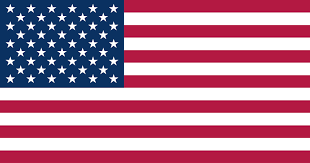VITAMIN D and FLUORIDE
Vitamins and Fluoride
Breastmilk provides the best nutrients for your baby. However, it is likely that your precious jewel will need some additional vitamin D
to absorb calcium and phosphorus and also support his/her immune system. If you breastfeed or partially breastfeed your baby, you should give your baby 400 International Units (IU) of Vitamin D by mouth per day. You should also give this supplement if your baby receives less than 32 oz of Vitamin D-fortified formula in a day.
Iron
For the first four months, a breastfed baby needs no additional iron. The iron in their body at birth was enough for their initial growth. But now the reserves will be low and as their growth increases, so will their need for iron. At four months of age infants who are partially or completely breastfeeding should be supplemented with 1 mg/kg per day of oral iron until appropriate iron-containing complementary foods (including iron-fortified cereals) are introduced in their diet. If there were pregnancy or birth complications such as diabetes, low birth weight, or prematurity, or if your baby was small for gestational age and is taking breast milk, iron supplementation may start in the first month after birth. Fortunately, once you start your baby on solid foods, they’ll also receive iron from meats, iron-fortified cereals and green vegetables.
Flouride
provides your child with excellent protection from cavities. Fluoride is a mineral that is found in all natural water sources and is the ionic form of the trace element fluorine, which is commonly found in the environment; fluorine reaches water sources by leaching from soil and rocks into groundwater. When used as directed or within the context of community water fluoridation programs, fluoride is a safe and effective agent that can be used to prevent and control dental caries.
Fluoride can be delivered topically and systemically. Topical fluorides strengthen teeth already present in the mouth, making them more decay resistant, while systemic (oral) fluorides are those that are ingested and become incorporated into forming tooth structures. Systemic fluorides also provide topical protection because fluoride is present in saliva, which continually bathes the teeth.
Most of New Jersey and some counties in New York do not participate in tap water fluoridation programs. It is recommended to start a vitamin with fluoride when your baby is 6 months old, which can by prescribed by your baby's physician. Upon the eruption of his/her first tooth, you should subsequently wipe or brush the teeth twice daily with a rice-grain-sized amount of fluoride toothpaste twice daily. You may increase that amount to a "pea-sized" smear at 3 years of age.
If you use well water for your drinking water, please check with your county health department to have your well water tested for fluoride and then consult with your pediatrician to assure that your child is getting the right amount of flouride.


